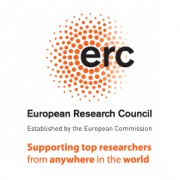Webinar Series
Republics of Letters around the Globe: Non-European and understudied European transnational learned and literary commonalities
From 2 April to 4 June 2021, the SKILLNET project will organize a series of webinars. A string of historians will give presentations about early modern transnational learned communities in the Eurasian continent, shedding light on the essence of what constitutes a transnational scholarly and scientific community.
The webinars will be hosted on Zoom. All sessions will be held on Fridays 15:00-16:30 CEST. Please register via skillnet@uu.nl by 12:00 CEST on the day before. You will subsequently receive invitations to all the other sessions. Registration is free!
You can download the flyer here.
After each webinar, the presentations are published on our YouTube channel (if permitted by the presenters).
Programme
Friday 2 April, 15:00-16:30 CEST, webinar 1: Jewish, Ottoman and women’s networks
- Shmuel Feiner (Bar Ilan University), “The New Letter Circulating in the Streets”: The Haskalah as a Communication Revolution
- Helen Pfeifer (Cambridge University), Cultural Encounters in Sixteenth-Century Ottoman Literary Salons
- Carol Pal (Bennington College), The Women’s Republic of Letters
Friday 16 April, 15:00-16:30 CEST, webinar 2: Euro-Arabic, Japanese and black networks
- Alex Bevilacqua (Williams College), The European Republic of Arabic Letters
- Anna Beerens/Wim Boot (University of Leiden), Japanese scholarly networks
- Anna Stibbe (Utrecht University), The resistance discourse of a black learned community: a trans-Atlantic citation network of 19th-c. black intellectuals
Friday 23 April, 15:00-16:30 CEST, webinar 3: Medieval, Iberian-Hebraist and Arabic-Christian networks
- Irene van Renswoude (University of Amsterdam), Medieval European learned networks
- Antonio Dávila Perez (Universidad de Cádiz), Networks of Hebrew and anti-Hebrew learning in Europe
- Vevian Zaki (Hill Museum and Manuscript library), The internal mobility of Arabic-speaking Christians in the Ottoman Empire: Monks and Visitors of St. Catherine’s Monastery, Sinai
Friday 14 May, 15:00-16:30 CEST, webinar 4: Jewish, Central-Asian and Chinese networks
- David Sclar (Harvard University), Jewish intellectual and pietistic networks
- James Pickett (University of Pittsburg), Central Asian intellectual networks
- Peter K. Bol (Harvard University), Literati networks in 15th-c. China
Friday 28 May, 15:00-16:30 CEST, webinar 5: Western Asiatic, women’s and Timurid networks
- Sonja Brentjes (Max Planck Institut für Wissenschaftsgeschichte), Cross-cultural encounters in the Mediterranean and western Asia
- Elisabet Göransson (Lund University), Female networks in early modern Europe
- Evrim Binbaș (Rheinische Friedrich-Wilhelms-Universität), Timurid intellectual exchanges
Friday 4 June, 15:00-16:30 CEST, Round Screen: what have we learned? Each participant shares five minutes of observations of how listening to other people’s experiences with similar material from different global contexts has affected their way of conceptualising collective intellectual identities that cross borders.
Introduction
The modern study of the early modern ‘Republic of Letters’ usually celebrates the moral heritage of the values of this social phenomenon: egalitarianism, tolerance, the idea of sharing knowledge, and meritocracy. Yet, the Republic of Letters was highly exclusive: it was academic, white, male, European, and heterosexual, and as such self-consciously elitist. The label of the ‘Republic of Letters’ also is predominantly attached to north-western Europe, and privileges the protestant learned world. Yet, within and outside of Europe, there were numerous learned networks active that did not fare under the name of a ‘Republic of Letters’, but that did function in the same ways. This panel or series of panels brings together scholars who study such early modern transnational learned communities and draw comparisons and contrasts, in order to shed more light on the essence of what constitutes a transnational scholarly and scientific community. Do we always capture learned commonality in terms of networks? And what kind of networks apart from the obvious epistolary ones that are so typical of the Republic of Letters: (co-)citation networks, books linking people, networks of learned families, master-apprentice relations, inter-institutional correspondence, shared membership of institutions or societies, academic enrollment networks, disputations linking people?
In the shadow of the study of the Republic of Letters, some attention has been paid to alternative learned and literary communities, even if these did not go under the name of a ‘Republic of Letters’. On the one hand, modern historians have labeled sub-sections of the Republic of Letters with names that were never actors’ categories, such as the ‘Republic of Women’, the ‘Republic of Drawings’, the ‘Republic of Materials’, or even the ‘Republic of Electrons’. Some of the people belonging to these groups constituted minorities within the oecumene of the Republic of Letters – minorities that were so precarious, that the question arises whether early modern majority scholars actually considered them to be part of the Republic of Letters at all (women, draughtsmen, artisans, Jews). Other historiographical lables such as the ‘Jesuit Republic of Letters’ or the ‘Hebrew Republic of Letters’ refer to religious or disciplinary sub-communities that were not necessarily disadvantaged (Jesuits, Christian Hebraists) but also did not necessarily associate with the Respublica literaria. More often, these labels function as modern historiographers’ attempts to emancipate groups that we now think should be part of the history of knowledge and thus deserve more or special attention. With these labels, historians specify particular communities that took an active part in the Republic of Letters: the ‘Hebrew Republic of Letters’ denotes not a Jewish network, but a network of Christian scholars of Hebrew. The ‘mathematical Republic of Letters’ is a historiographical construct that suggests that there were networks of people who communicated in particular about mathematics. And how current was the term ‘Republic of Letters’ anyway in, say, the Iberian peninsula or the Polish-Lithuanian Commonwealth?
But also outside Europe existed expressions of transnational learned commonalities. For example, in the early 19th-century communication between intellectuals from Japan, Korea and China, the notion of cheonaejigi (天涯知己), denotes a horizontal mutual relationship with an open communication channel bridging the distance between scholars in different lands.
The chronological range of this conference is limited to the ‘long’ early modern period, but potentially runs from the late medieval period up into the 19th century. For non-European history, this periodisation does not apply.


